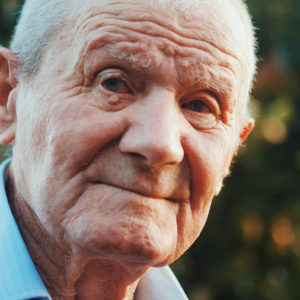No politician ever addressed the issue of a president’s age better than Ronald Reagan. When asked during the second debate against Walter Mondale in October 1984 about his ability to endure the rigors of the presidency given his age, the 73-year-old president quipped, “I will not make age an issue of this campaign. I am not going to exploit, for political purposes, my opponent’s youth and inexperience.”
Reagan brought down the house with his response but he also cast sunlight on a legitimate question: Is there an upper limit to the age of an American president? The Constitution sets a minimum age to be president but is silent on how old one may be to serve in that office. Current polling data are unlikely to reflect the general election match-up next year but there’s a fair chance that the presidential election will pit one septuagenarian against another. It’s entirely possible that whoever wins in 2020 will be the oldest person ever elected to serve in the White House.
Donald Trump will be 74 years old in November 2020. Among the president’s prospective opponents who are polling in double-digits, Joe Biden will be 77 and Bernie Sanders will be 79. While it might be fun to watch a couple of old white guys duke it out in a general election, people can be forgiven for wondering if either nominee has the stamina for the presidency. It’s a difficult job — I wouldn’t want it! — and it’s physically demanding.
Take a look at aging in America today. The average age of a living American retiree is just shy of 60. The Bureau of Labor Statistics reports that more than 9.7 million people in the workforce last year were older than 65 and the Washington Post reported last year that more than a quarter million Americans age 85 and older were still in the workforce.
Americans are working longer for a variety of reasons so the prospect of electing a president in his 70s isn’t so farfetched. At the other end of the age spectrum we have South Bend, Indiana, Mayor Pete Buttigieg. At 37 years, his age barely eclipses the Constitution’s mandate that presidents be at least 35, a benchmark that was established at a time when the average life expectancy was about 40 years, albeit higher for those surviving to adulthood. In the context of the times, there’s no question the framers contemplated an “older” person in the presidency.
This is not to say the Founders eschewed youth in public policy. They didn’t. Thomas Lynch Jr. and fellow South Carolinian Edward Rutledge were both 26-years-old when they affixed their signatures to the Declaration of Independence. Thomas Jefferson, credited with drafting the Declaration, was 33. Other men who contributed greatly to the American founding were younger still. Alexander Hamilton was 21-years-old in 1776 while future president James Monroe was a teenager of 18.
But lost in the discussion of age is what a person has learned and done during their time on earth, and how it informs their thinking today. Consider Buttigieg’s 37 years. He’s become mayor of a small city in Indiana and presides over a local poverty rate of 25.4 percent, nearly twice the national average.
Aside from a couple of years as a law clerk and newly minted lawyer, Joe Biden has never worked in the private sector. Today, he finds himself defending and backtracking on a 50-year record as an elected politician. Bernie Sanders, who was born three months before Pearl Harbor was bombed, cultivated his career through protest and agitation before embracing the socialist agenda and winning political office in Vermont.
One can engage in the same exercise with any of the myriad people seeking the Democratic presidential nomination, but you get the point. Less important than the age of a candidate is what they have done with those years. Have those years been spent perfecting ways of separating people from their money for the express purpose of giving it to people who haven’t earned it, or seeking and finding ways to unleash the power of the human spirit and individual achievement?
This single question encapsulates what people will consider when they head to the polls 500 days from now. It will determine the outcome of the 2020 election far more than the age of those vying for the presidency.

